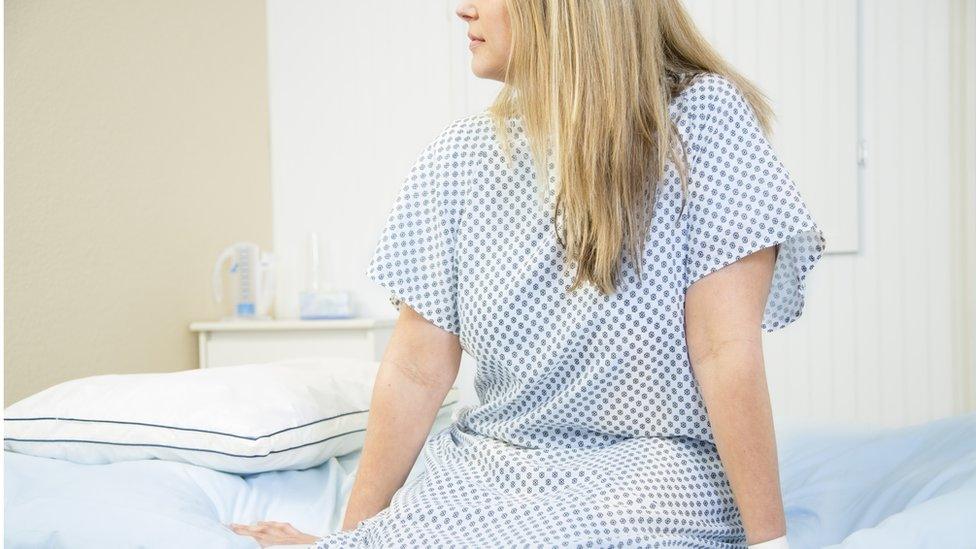Women's health: Female patients to be asked about 'gender health gap'
- Published

Women and girls in England are being asked to share their experiences of the health system as part of a government strategy to address inequalities.
Ministers say there is "strong evidence" services for female patients need improving.
Fertility, maternity and menopause care are among the areas to be discussed.
Campaigners say they are "delighted" steps are "finally" being taken to close the so-called "gender health gap".
While women in the UK have a longer life expectancy than men, the Department for Health and Social Care says they are spending less of their life in good health.
Nadine Dorries, minister for women's health, said: "Women's experiences of healthcare can vary and we want to ensure women are able to access the treatment and services they need.
"It's crucial women's voices are at the front and centre of this strategy so we understand their experiences and how to improve their outcomes."
Studies suggest gender biases in clinical trials are a contributing factor.
Less is also said to be known about many female-specific conditions and how to treat them.
Patients have repeatedly reported to the ┤¾¤¾┤½├¢ that they have felt overlooked when talking to doctors about conditions like endometriosis or complications following a pelvic mesh repair.
From Monday 8 March, the Women's Health Strategy will spend 12 weeks speaking to female patients about a wide range of issues including maternity care and mental health.
The plan was due to launch last year, but had to be delayed because of the coronavirus pandemic.
It is understood ministers hope to publish it when MPs return to Parliament after the summer break.
Campaigners have welcomed the idea but say it's vital women are properly listened to and appropriate action taken.
Gill Walton, chief executive of the Royal College of Midwives, said: "We know that placing women at the centre of their own care not only improves outcomes in pregnancy, but also improves a woman's experience of birth and maternity care."
Mika Simmons, co-chair of the Ginsburg Women's Health Board, filmmaker, and host of The Happy Vagina podcast, said: "Every single woman I speak to, myself included, has experienced either misunderstanding or loss as a direct result of slow or inaccurate diagnosis of their health concerns.
"I am delighted that this - the gender health gap - which grew out of a severe lack of historical research into women's health issues, is not only finally being acknowledged but that steps are being taken to right size it."
Related topics
- Published8 July 2020
- Published12 February 2019
- Published5 April 2019